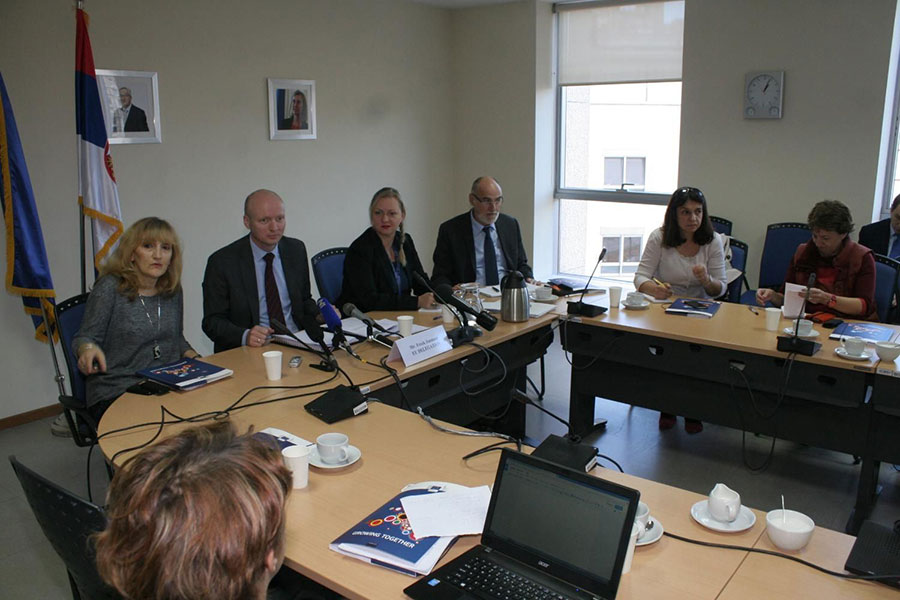During the briefing dedicated to economy aspects of European Commission Report on Serbia, Head of European Integration Sector at the EU Delegation in Belgrade Freek Janmaat said that Serbia breached the Stabilisation and Association Agreement by introducing protective measures on the import of dairy and pork from the EU.
Report on Serbia states that in 2015 Serbia introduced protective measures regarding the import of milk, cheese, butter and pork, noting that explanation provided by the authorities was not reasoned enough.
“We believe that this (protective measures for milk and pork) is in breach of SAA and not justified given the situation in these sectors,” said Janmaat.
“Serbian Government has notified us that following 31 December these measures will not be valid anymore. However, it would be much better if this would happen sooner,” Janmaat said.
He said that Serbia raised maximum level of aflatoxins in milk to 0.25 milligrams per kilo in October, whereas the maximum in the EU remains 0.05 milligrams.
Potential export of dairy to the EU is thus hampered. Serbian companies should prove that levels of aflatoxins in their products stand at 0.05 milligrams or lower, Janmaat said, and called relevant Serbian authorities to align levels of aflatoxins with the EU.
A more thorough system of inspection and control should be put in place in order to monitor this process, said Head of European Integration Sector at the EU Delegation to Serbia Freek Janmaat.

Photo: FoNet
EU – Serbia’s Largest Trading Partner
The EU accounts for 69% of Serbia’s export and 61% of its import. Nearly three quarters of direct foreign investments in Serbia have their origin in the EU, said Janmaat during media briefing.
Noting that Serbia is currently getting out of the third recession in the past five years, he said that the EU foresaw Serbia would reach economic growth of 0.7% this year.
Unemployment stands below 20%, inflation remains low, budget deficit has been significantly reduced in the first nine months of 2015, Janmaat said.
He expressed his concern for the high level of public debt which, estimates show, would reach 80% of GDP in 2017.
Janmaat said that SMEs employed over 70% of all employees, but that their position in less favourable compared to public enterprises and private sector which received state aid.
“SMEs are most affected by financing difficulties so we advised the Government to support them,” Janmaat said.
According to him, state aid in Serbia rose to 2.7% of GDP in 2014, whereas in the EU this form of assistance stands at 0.8%.
Serbia should review the efficiency of its state aid, Janmaat said.
Genetically Modified Food
Serbia should adopt new law on genetically modified products and align it with European standards as soon as possible, but it may also ban the cultivation of genetically modified crops, Freek Janmaat told press during media briefing.
“The sooner Serbia harmonises its law on genetically modified products, the better, because it would keep Serbia on track of joining World Trade Organisation,” said Janmaat.
He stressed that the EU policy on genetically modified products was “very restrictive” and contained clear rules regarding the labelling of these products.
“It is up to Member States to decide whether they want to allow cultivation of GMOs and we have rather strict procedures of scientific testing of GMO products before we allow their circulation in the EU market,” said Janmaat.
As of 2015, new regulation has entered into force regarding the GMO products in the EU. Products which turn out to be safe, and are clearly labelled, are allowed for circulation, but Member States may opt to ban cultivation of such crops on their territory. So far, 19 Member States have done so.
Answering the question, Janmaat said that, if it opts to do so, Serbia would have an opportunity to ban the cultivation of GMO crops in the process of harmonisation with European standards.




